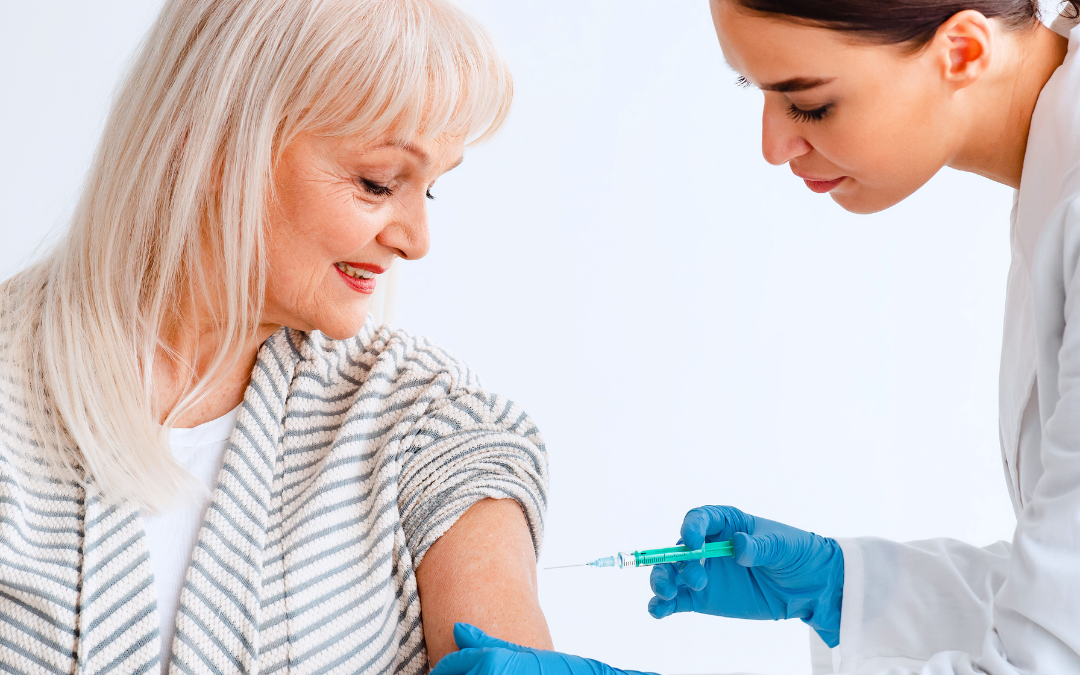During the flu season, it is important that seniors take every precaution necessary to prevent them from getting sick. Although seniors should always take steps to prevent illnesses like the flu, it is important to recognize that there are other viruses and illnesses that can be just as harmful to seniors. Some of these illnesses include Covid-19, the Common Cold and RSV. If you are caring for a senior parent/grandparent or family member, being informed about harmful viruses will enable you to make the right decisions that help you keep your love one safe.
In this post we will take a look at RSV and how you can help your elder take precautions year round to prevent contracting this virus. Let’s jump in and take a closer look at RSV.
What is RSV?
Respiratory Syncytial Virus, also known as RSV.1 RSV is a common virus that affects the lungs and breathing passages. Older adults are at higher risk for severe RSV illness. If you are wondering “how does a person contract this illness?,” it is simple. They can catch RSV the same way children do. When a person who has RSV coughs or sneezes, the virus gets ejected into the air around them. The virus will then travels through respiratory aerosolized droplets. RSV is a virus that spreads very quickly and can lingers on hard surfaces for several hours after contact.

Who’s most at risk from RSV as an adult? 2
Adults who are most at risk of an RSV infection include:
- People over the age of 60.
- People with asthma.
- People with chronic lung disease or heart disease.
- People who are receiving chemotherapy, radiation therapy or targeted therapy for cancer.
- People who’ve received an organ transplant.
- People who have an autoimmune disorder or are immunocompromised by other means.
- People who are hospitalized or live in long-term care facilities, nursing homes or assisted living.
The difference between the Flu, RSV, Covid-19 and the Common Cold
According to The National Foundation For Infectious Diseases; Symptoms of influenza (flu), respiratory syncytial (sin-SISH-uhl) virus (RSV), and COVID-19 are similar and may include fever, cough, and shortness of breath. Because the symptoms are similar, it can be difficult to distinguish between illnesses caused by respiratory viruses. To diagnose a potential case, healthcare professionals may use a diagnostic test. 3

Tips To Keep Seniors Safe & Prevent Contracting The RSV Virus
Seniors should take precautions if they are living in a household with a person who has contracted RSV. Spending time with an infected person or persons, will only increase the risk of a senior catching the disease. If your senior loved one lives with you and someone in the home contracts the RSV virus, it will be best to isolate the individuals until they have recovered. This will prevent the spread of the virus to anyone else in the home, including your aging loved one. Apart from avoiding infected persons, there are a few other steps you can take to prevent this virus.

Be sure to speak with your seniors’ physician to find out which RSV vaccine is right for them. If you have any questions about the virus be sure to write them down. This will help you to be better prepared when you speak with their doctor.
References mentioned in this blog post:
(1) Respiratory Syncytial Virus, also known as RSV – https://www.rsvandme.com/
(2) Who is the most at risk for RSV – https://health.clevelandclinic.org/rsv-in-older-adults
(3) The difference between the Flu, RSV, Covid-19 and the Common Cold – https://www.nfid.org/resource/how-to-tell-the-difference-between-flu-rsv-covid-19-and-the-common-cold/

